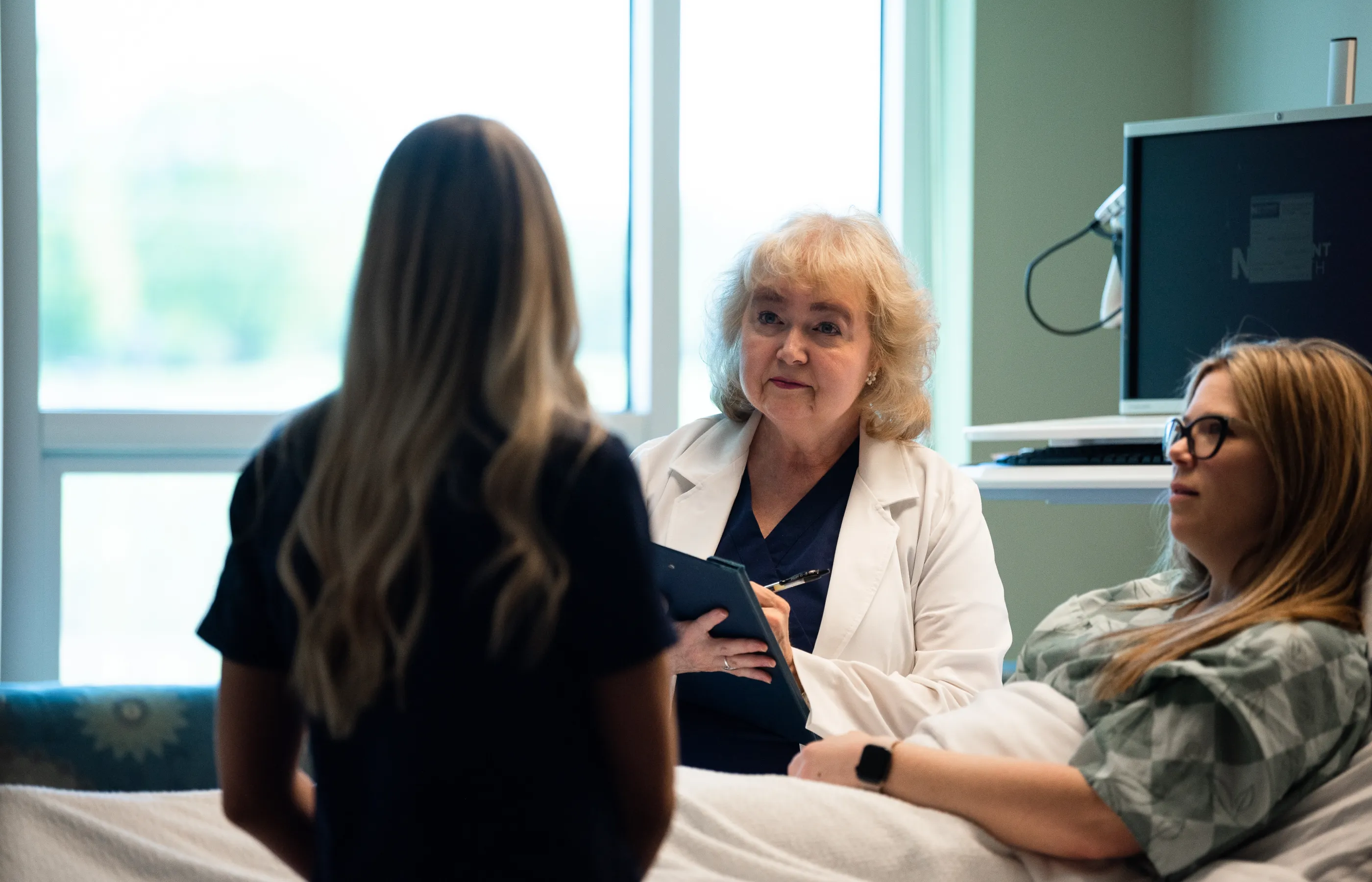Surgical Oncology Cancer Treatment
Access exceptional surgical cancer treatment.
Many cancer treatment plans involve surgery to remove cancerous tumors. The surgical oncologists at Novant Health Cancer Institute are highly specialized by cancer type, regularly performing surgery for your condition. To ease your recovery we perform complex procedures using minimally invasive cancer surgeries and the most advanced surgical equipment, like robotic arms, whenever possible.
Understanding Surgical Oncology Treatments.

Inpatient oncology surgery
Our inpatient oncology team cares for you when your treatment requires a hospital stay. We want to ensure you receive the highest level of clinical care and support you need as you .
Why inpatient surgery may be necessary
Although our specialists use minimally invasive techniques whenever possible, in some instances, your surgical oncologist may recommend performing a procedure in an inpatient setting. That may depend on factors like:
- The complexity of the surgery
- The effect of surgery on the function of the organ or gland where the tumor is being removed
- The potential for complications related to your surgery
- Your family and medical history
- Your general health, age and lifestyle
- Other medical conditions you currently have
- Whether any rehabilitative services are needed after surgery
Recovering from inpatient oncology surgery
Your surgical oncologist is part of your multidisciplinary cancer care team that includes specialized nurses and rehabilitative experts. Depending on the type of surgery and your post-operative needs, you may be connected with physical, occupational, speech, cognitive and mental health therapists. These professionals can help you start the recovery process to regain your strength, functioning and confidence.

Outpatient oncology surgery
Some surgical oncology procedures are performed as outpatient services. Outpatient surgeries are minimally invasive, resulting in less discomfort and faster recovery. After your surgery, our team will ensure you have the support and educational resources you need when you go home.
Recovering from outpatient oncology surgery
You'll typically go home on the same day when your surgery is an outpatient procedure. However, your surgeon may recommend staying overnight for observation to ensure you recover from the operation as expected.
Although outpatient surgeries are typically minimally invasive, it could take weeks or months to recover from your procedure. Your care team may send you home with the following:
- Instructions for wound care at home
- Directions related to appropriate physical activity
- Medications and usage instructions
Your treatment plan may also include follow-up care, including rehabilitative and imaging services, chemotherapy, radiotherapy or immunotherapy. We’ll arrange those as part of your care journey.
